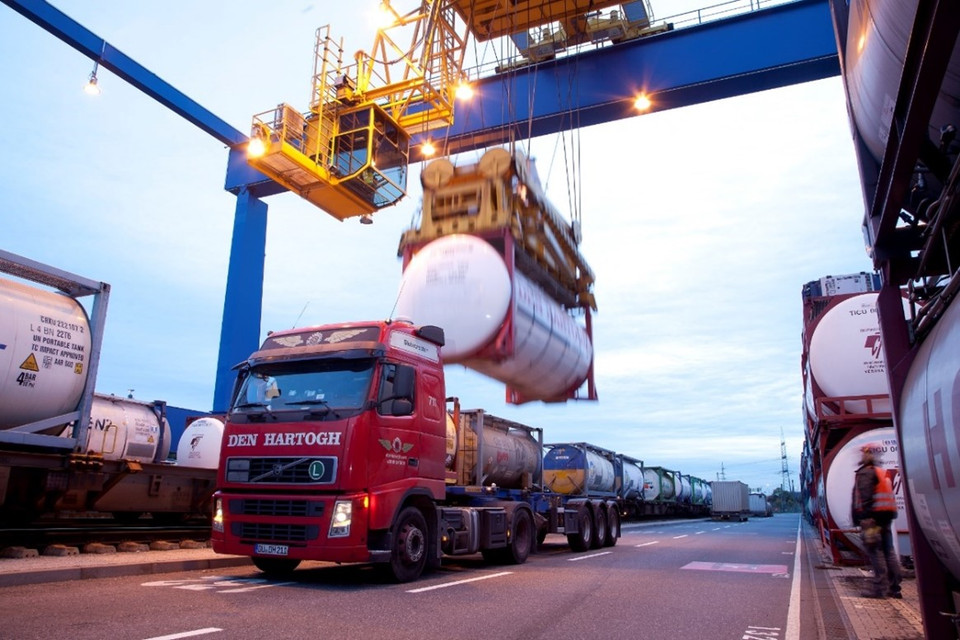AI Boosts Rail Freight Efficiency – KIBA Project Successfully Completed
Oct 16, 2025
After three years of intensive research and development, the KIBA project – which stands for Artificial Intelligence and Discrete Loading Optimization Models for Enhanced Utilization in Combined Transport – has been successfully completed. Led by Kombiverkehr KG and supported by Deutsche Umschlaggesellschaft Schiene-Straße (DUSS), Goethe University Frankfurt am Main, INFORM, KombiConsult, Technical University of Darmstadt, and VTG, the project developed a demonstrator for a network capacity management and train loading optimization system. The project was funded by the Federal Ministry for Digital Transformation and Government Modernisation (formerly Federal Ministry for Digital and Transport).

Loading a tank container from a truck onto a flatcar at the Kombiterminal Ludwigshafen (Image: Kombiverkehr KG)
The goal of KIBA was to use artificial intelligence (AI) and mathematical optimization to enhance efficiency, safety, and sustainability in rail freight transport. Supported by a central master data system, methods for network optimization and train loading planning were developed and visualized through a web-based interface for practical user insights.
“With KIBA, we have demonstrated how AI can make rail freight transport more efficient. The developed prototypes help maximize train capacity, use resources more effectively, and make combined transport more attractive. This represents an important step toward shifting freight from road to rail – and thus toward climate protection,” said Heiko Krebs, Managing Director of Kombiverkehr KG
The developed models for train loading planning ensure that trains are utilized to their full capacity in terms of weight and length while reducing crane movements and reloading processes. Numerous variables are automatically and simultaneously considered in the optimization. The network planning component combines AI-based volume forecasts with mathematical optimization to distribute load units in a way that achieves optimal train utilization and ensures fast transport times with minimal transshipments.
“The combination of AI and optimization opens entirely new opportunities for combined transport. Forecasts of booking volumes for load units can be directly integrated into optimization processes, allowing for efficient train loading and more stable network control. This creates a practical approach that directly supports operational systems and enhances the performance of rail freight,” explained Dr. Rafael Velásquez, Director Optimization & Integration at INFORM.
KIBA not only marks a technological milestone for combined transport but also exemplifies successful collaboration between academia and industry. “The close cooperation between Kombiverkehr, INFORM, DUSS, KombiConsult, and the two universities was the decisive success factor. Only by combining these diverse areas of expertise could such an innovative outcome be achieved,” said Krebs. “As a company that itself emerged from academic research more than 55 years ago, building bridges between universities and industry is deeply important to us. Especially in the field of AI, we see a strong need to maintain this link to stay competitive internationally,” added Dr. Eva Savelsberg, Senior Vice President and Member of the Executive Board at INFORM.
With the completion of the project, a solid foundation has been laid for further practical testing and integration of the developed solutions into existing systems. Next steps toward productive deployment include ensuring high-quality data, automating information exchange, and conducting live tests within operational systems. The prototype developed in KIBA is now being prepared for early use by terminal operators and rail freight service providers.
